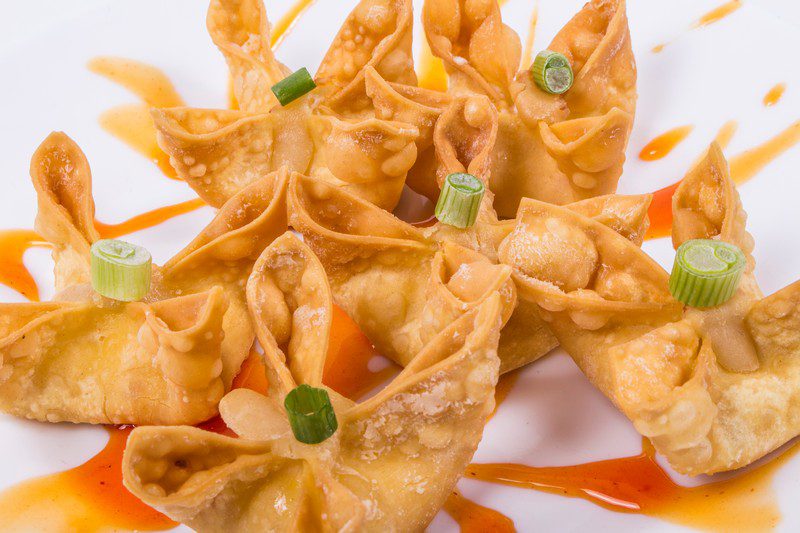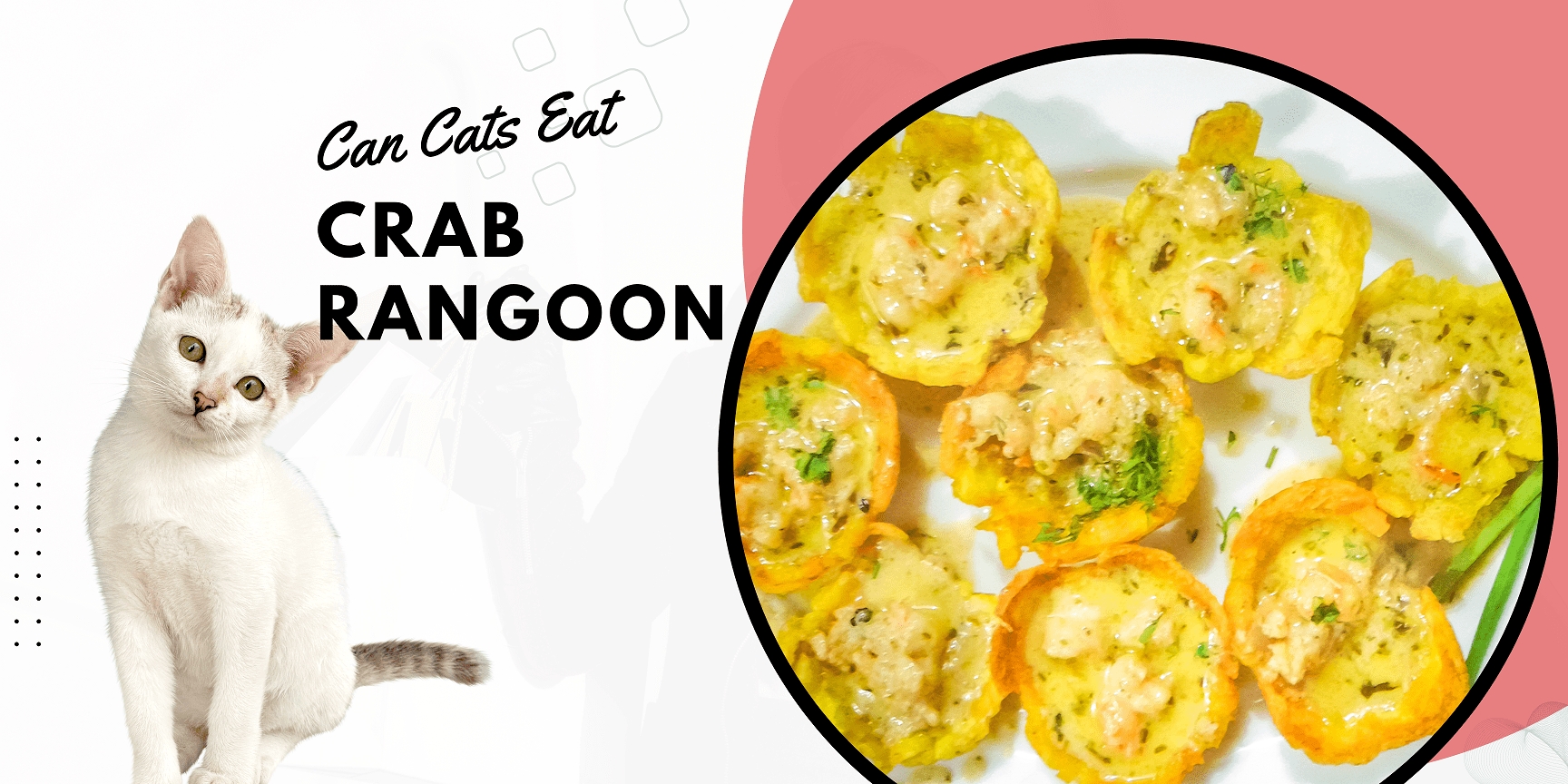Crab Rangoon is a popular appetizer in many Asian cuisines, known for its crispy exterior and creamy filling. As a cat owner, you may wonder if it’s safe to share this delicious treat with your feline friend. In this article, we will explore whether cats can eat Crab Rangoon and discuss the potential risks and benefits associated with feeding it to them.

Can Cats Safely Consume Crab Rangoon?
While cats are obligate carnivores and thrive on a diet primarily consisting of meat, they may occasionally show interest in other foods. However, it’s important to note that not all human foods are safe for cats, and some can even be toxic to them. When it comes to Crab Rangoon, there are a few factors to consider before sharing it with your furry companion.
The Ingredients in Crab Rangoon
Crab Rangoon typically contains a mixture of cream cheese, crab meat, and various seasonings, all wrapped in a wonton wrapper and deep-fried. Let’s take a closer look at each of these ingredients and their potential impact on your cat’s health.
1. Cream Cheese
Cream cheese is a dairy product that is high in fat and lactose. While small amounts of dairy can be tolerated by some cats, many are lactose intolerant and may experience digestive issues if they consume it. It’s best to avoid feeding your cat large quantities of cream cheese or any other dairy products.
2. Crab Meat
Crab meat itself is not toxic to cats and can be a good source of protein. However, it’s important to ensure that the crab meat used in Crab Rangoon is fresh, properly cooked, and free from any seasonings or additives that may be harmful to cats.
3. Seasonings and Additives
Some seasonings and additives commonly used in Crab Rangoon, such as garlic and onion powder, can be toxic to cats. These ingredients can cause gastrointestinal upset, anemia, and other health issues. It’s crucial to check the ingredient list and avoid feeding your cat any Crab Rangoon that contains harmful seasonings or additives.
Risks of Feeding Crab Rangoon to Cats
Feeding Crab Rangoon to your cat can pose several risks to their health. Here are some potential issues to consider:
-
Digestive Upset: The high fat content and lactose in cream cheese can lead to digestive issues like diarrhea and upset stomach in cats.
-
Allergic Reactions: Cats can develop allergies to certain ingredients in Crab Rangoon, such as crab meat or seasonings. Allergic reactions may manifest as skin irritations, itching, or even respiratory problems.
-
Toxic Ingredients: If the Crab Rangoon contains toxic seasonings like garlic or onion powder, it can cause severe health problems in cats. These ingredients can damage their red blood cells and lead to anemia.
Alternatives to Crab Rangoon for Cats
Instead of sharing Crab Rangoon with your cat, consider offering them cat-friendly alternatives that are both safe and nutritious. Here are a few options:
-
Cooked Meat: Cats thrive on a meat-based diet, so offering them small portions of cooked chicken, turkey, or fish can be a healthier alternative to Crab Rangoon.
-
Cat Treats: There are numerous cat treats available in the market that are specifically formulated to meet feline nutritional needs. Look for treats made from high-quality ingredients and approved by veterinarians.
-
Homemade Treats: If you enjoy cooking, you can prepare homemade treats for your cat using cat-safe ingredients like cooked meat or pureed vegetables. Just make sure to avoid using any harmful seasonings or additives.
Conclusion
In conclusion, while cats may show interest in Crab Rangoon, it’s best to avoid feeding them this appetizer. The high fat content, lactose, and potential toxic ingredients make it an unsuitable choice for feline consumption. Instead, opt for cat-friendly alternatives that provide the necessary nutrients without compromising their health. Remember to consult with your veterinarian for personalized dietary recommendations for your cat.
FAQs
-
Can cats eat crab meat?
Yes, cats can eat crab meat as long as it is fresh, properly cooked, and free from any harmful seasonings or additives. However, it should only be given in moderation as part of a balanced diet. -
Are cats lactose intolerant?
Many cats are lactose intolerant, which means they lack the enzyme needed to digest lactose, the sugar found in milk and dairy products. Feeding cats large amounts of dairy can lead to digestive upset. -
Why are garlic and onion powder toxic to cats?
Garlic and onion contain compounds that can damage a cat’s red blood cells, leading to anemia. Even small amounts of these ingredients can be harmful to cats and should be avoided. -
What should I do if my cat accidentally eats Crab Rangoon?
If your cat consumes a small amount of Crab Rangoon, monitor them closely for any signs of digestive upset or allergic reactions. If you notice any concerning symptoms, contact your veterinarian for guidance. -
Can I give my cat homemade treats?
Homemade treats can be a great option for cats, as long as they are made with cat-safe ingredients and free from harmful seasonings or additives. It’s always a good idea to consult with your veterinarian before introducing any new foods to your cat’s diet.

